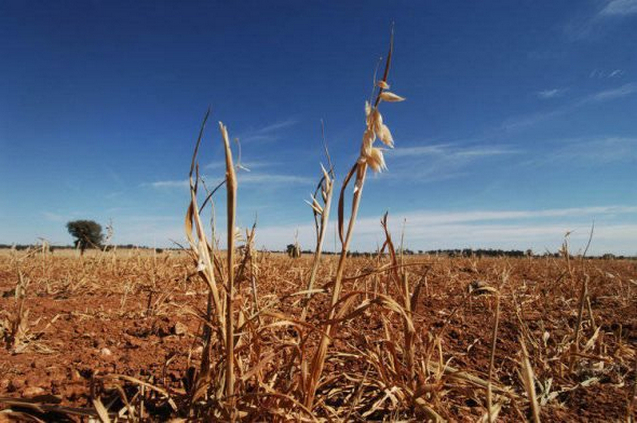Leading economists, including Joseph Stiglitz and Nicholas Stern say taxes of $100 per metric ton could be needed by 2030
 |
| The aim of a steep tax on carbon would be essential to meet the targets set by the Cop21 Paris Agreement in 2015, the experts said. Photograph: Jasper Juinen/Bloomberg/Getty |
A group of leading economists warned on Monday that the world risked
catastrophic global warming in just 13 years unless countries ramped up
taxes on carbon emissions to as much as $100 (£77) per metric ton.
Experts including Nobel Laureate Joseph Stiglitz and former World Bank chief economist Nicholas Stern said governments needed to move quickly to tackle polluting industries with a tax on carbon dioxide at $40-$80 per ton by 2020.
A tax of $100 a ton would be needed by 2030 as one of a series of measures to prevent a rise in global temperatures of 2C.
In a report by the High Level Commission on Carbon Prices, which is backed by the World Bank and the International Monetary Fund, they suggest poor countries could aim for a lower tax since their economies are more vulnerable.
The aim of a tax on carbon would be essential to meet the targets set by the Cop21 Paris Agreement in 2015, they said.
The call for action will sting European leaders, who have presided
over a carbon trading scheme since 2005 that currently charges major
polluters just €6 (£5.20) for every tonne of carbon they release into
the atmosphere.
The European scheme, which issues carbon credits to firms that can be traded on a central exchange, has come under fire for allowing heavy energy users to avoid investments in new technology to cut their emissions.
Critics accuse officials of issuing too many credits and allowing the price to fall to a level that makes it cheaper to pollute than for companies to change their behaviour.
Stiglitz and Stern said prices should rise to $50-$100 by 2030 to give businesses and governments an incentive to lower emissions even when fossil fuels are cheap.
The Trump administration has rejected calls to introduce a carbon tax in the United States, saying it would cost jobs. Washington’s refusal to adopt a tax has deterred Brussels from moving to a more substantial charge on emissions, which would have the effect of increasing energy costs, at least in the short term, and imposing higher costs on European manufacturers.
The European Union’s Emissions Trading System (ETS) is the world’s biggest scheme for trading greenhouse gas emissions allowances. It covers some 11,000 power stations and industrial plants in 30 countries, whose carbon emissions make up almost 50% of Europe’s total.
Links
Experts including Nobel Laureate Joseph Stiglitz and former World Bank chief economist Nicholas Stern said governments needed to move quickly to tackle polluting industries with a tax on carbon dioxide at $40-$80 per ton by 2020.
A tax of $100 a ton would be needed by 2030 as one of a series of measures to prevent a rise in global temperatures of 2C.
In a report by the High Level Commission on Carbon Prices, which is backed by the World Bank and the International Monetary Fund, they suggest poor countries could aim for a lower tax since their economies are more vulnerable.
The aim of a tax on carbon would be essential to meet the targets set by the Cop21 Paris Agreement in 2015, they said.
The European scheme, which issues carbon credits to firms that can be traded on a central exchange, has come under fire for allowing heavy energy users to avoid investments in new technology to cut their emissions.
Critics accuse officials of issuing too many credits and allowing the price to fall to a level that makes it cheaper to pollute than for companies to change their behaviour.
Stiglitz and Stern said prices should rise to $50-$100 by 2030 to give businesses and governments an incentive to lower emissions even when fossil fuels are cheap.
The Trump administration has rejected calls to introduce a carbon tax in the United States, saying it would cost jobs. Washington’s refusal to adopt a tax has deterred Brussels from moving to a more substantial charge on emissions, which would have the effect of increasing energy costs, at least in the short term, and imposing higher costs on European manufacturers.
The European Union’s Emissions Trading System (ETS) is the world’s biggest scheme for trading greenhouse gas emissions allowances. It covers some 11,000 power stations and industrial plants in 30 countries, whose carbon emissions make up almost 50% of Europe’s total.
Links
- 10 years on from the Stern report: a low-carbon future is the 'only one available'
- Paris climate deal will not include global carbon price, says UN climate chief
- Norwegian PM demands global carbon price
- Current carbon pledges won't stop dangerous global warming, says Lord Stern
- Climate summit’s pledges on carbon cuts ‘won’t avert global disaster’
- Carbon bubble will plunge the world into another financial crisis – report
- Ex-UN climate chief says business should get ready for low-carbon world



